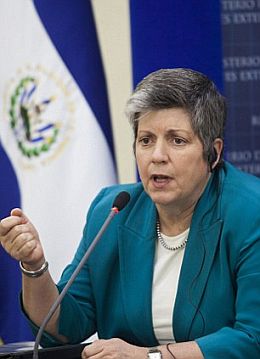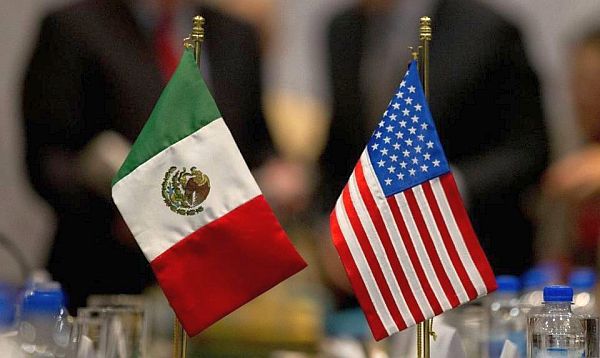Sacramento, Calif. - I've just returned from three days of talks in Mexico City with leaders in the Mexican government, in public and private education, in energy, and the business sector. At each stop and in every conversation, uncertainty about the Trump administration underpinned the tone.
The current and likely future relationship between the U.S. and Mexican governments – and by extension, the American and Mexican people – is complicado, the Mexicans often told me. Not that complicated was anything new. But that assessment was usually followed by alarming, or nonsensical, or much worse.
That's just one reason why it's more important than ever for institutions such as universities to step in to help – with research-backed facts, perspective and common sense – instead of Americans and Mexicans walling off each other.
I started the University of California's Mexico initiative three years ago to strengthen UC research and collaboration with Mexico's institutions of higher education, scholars and researchers, government officials and the private sector. The plan was to advance solutions to critical issues affecting life on both sides of the border.
 |
But we can do more. Knowledge and ideas transcend lines in the sand or marks on a land surveyor's map, and applying this common-sense adage to help solve mutual challenges in public health, energy and the environment, to name but a few, is part of what UC does.
This makes sense, not only to what Mexico calls its “nation building,” but to furthering and strengthening California-Mexico ties. Mexico has been California's number one trading partner since 1999 and it remains the largest market for exports of California-made goods. Helping Mexico to become more developed, prosperous and secure helps California, and our nation, too.
When I was Department of Homeland Security secretary, I and others worked closely with Mexican counterparts who shared vital intelligence about binational threats such as drug cartels, human trafficking and terrorism. Let's hope this cooperation continues, for the good of us all.
In my former role as governor of Arizona, I saw clearly the advantages of cooperation over confrontation with our southern neighbors. Today the former governor of the Mexican state of Sonora and I remain close friends.
We had dinner together last week and the talk around the table was the likelihood that recent anti-Mexico rhetoric and actions could not only spark a trade war, but also catapult a far left, anti-American politician into the Mexican presidency. With each government fueled more by nationalistic slogans than pragmatic respect and cooperation, we'll all pay too high a price.
On this recent trip to Mexico, I gave talks at the Foreign Relations Ministry, the Energy Ministry, the U.S.-Mexico Chamber of Commerce, and the Mexican equivalent of our Council on Foreign Relations. Without exception, the Mexicans met me and others from the University of California with a sense of gratitude and relief. The fact that we had even made the trip gave them hope.
Mexico must remain our trusted partner and friend. Californians, especially, have families, a cultural heritage and interests in common with Mexico. We must be pragmatists, not antagonists. The University of California will continue building bridges, not walls, with our neighbor to the south, fostering collaboration and respect.
Original article written by Janet Napolitano, president of the University of California. She can be contacted at president@ucop.edu.


